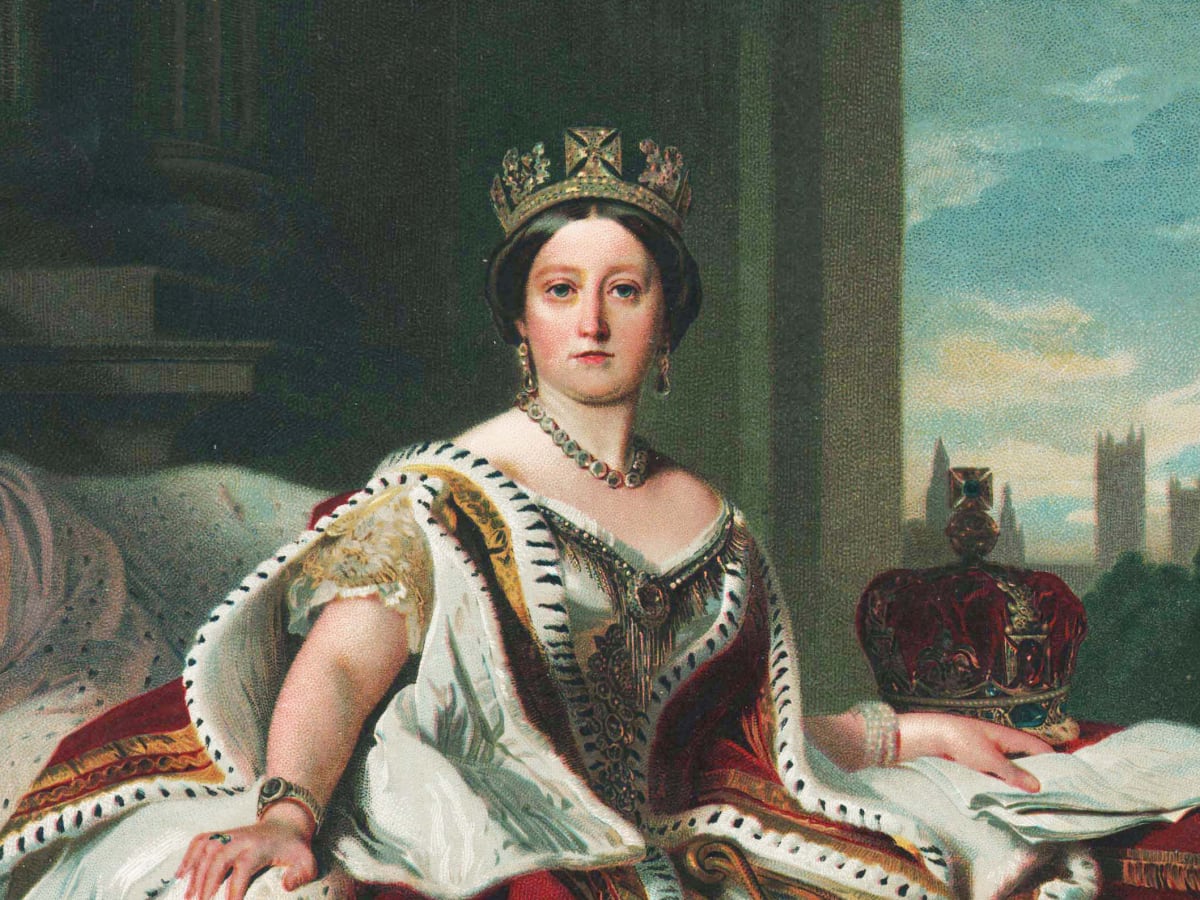
27 interesting facts about Queen Victoria
- 👁️ 295
Queen Victoria was the longest reigning British monarch and her reign, the Victorian Era, was a time of great change and progress in Britain. Her impact on British society, politics, and culture cannot be overstated.
Facts about Queen Victoria:
- Queen Victoria was born on May 24th, 1819.
- She was the only child of Edward, Duke of Kent and Strathearn.
- Queen Victoria ascended to the throne at the age of 18, following the death of her uncle, King William IV.
- She was the longest reigning British monarch in history, ruling for 63 years and 7 months.
- Victoria’s reign is known as the Victorian Era, a time of great change and progress in Britain.
- Victoria married her first cousin, Prince Albert of Saxe-Coburg and Gotha, in 1840.
- The couple had nine children together, including the future King Edward VII.
- Victoria was a prolific letter writer and left behind an extensive collection of written material.
- She was a supporter of the Arts and Sciences, and her reign saw the establishment of several institutions including the Royal College of Music and the Victoria and Albert Museum.
- Queen Victoria was a strong and influential figure, known for her strong sense of duty and responsibility.
- She was also a figurehead for the British Empire, which reached its zenith during her reign.
- Queen Victoria was known for her conservative and traditional values, which helped define the Victorian Era.
- She was a symbol of stability and order in a rapidly changing world, and her reign is often remembered as a time of peace, prosperity, and progress.
- Victoria’s influence on British society and culture was immense, and she continues to be remembered as one of the greatest monarchs in British history.
- Her reign saw the expansion of the British Empire, including the colonization of India, Africa, and Australia.
- Victoria’s era was also marked by significant technological advancements, including the introduction of the telegraph and the railway system.
- During her reign, the Industrial Revolution continued to gather pace and Britain became a leading industrial and economic power.
- Victoria was a patron of the Arts, and her reign saw a flowering of the Arts, including literature, music, and visual arts.
- She was a passionate supporter of the sciences, particularly medicine, and her reign saw significant advancements in medical knowledge and practices.
- Queen Victoria was the first monarch to use the title “Empress of India”.
- She was a strong and passionate supporter of women’s rights, and her reign saw the growth of the women’s suffrage movement.
- Victoria was a deeply religious woman, and her faith played an important role in her life and reign.
- She was deeply affected by the death of her husband, Prince Albert, in 1861 and went into a period of mourning that lasted for the rest of her life.
- Despite her personal tragedy, Victoria continued to fulfill her duties as monarch, and her reign saw significant progress and change.
- Queen Victoria died on January 22nd, 1901, at the age of 81.
- She was succeeded by her son, King Edward VII.
- Victoria’s legacy continues to be felt today, and she is remembered as one of the greatest monarchs in British history.
Queen Victoria was the longest reigning British monarch and her reign, the Victorian Era, was a time of great change and progress in Britain. Her impact on British society, politics, and culture cannot be overstated. Facts about Queen Victoria: